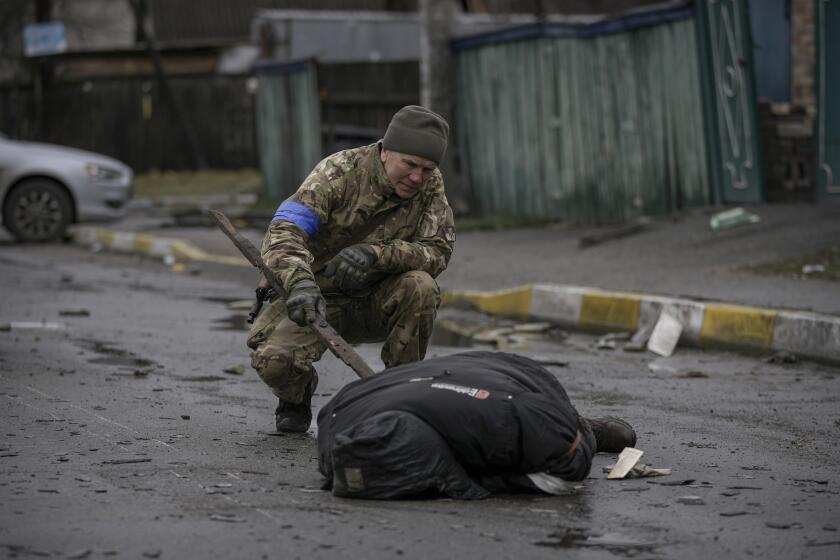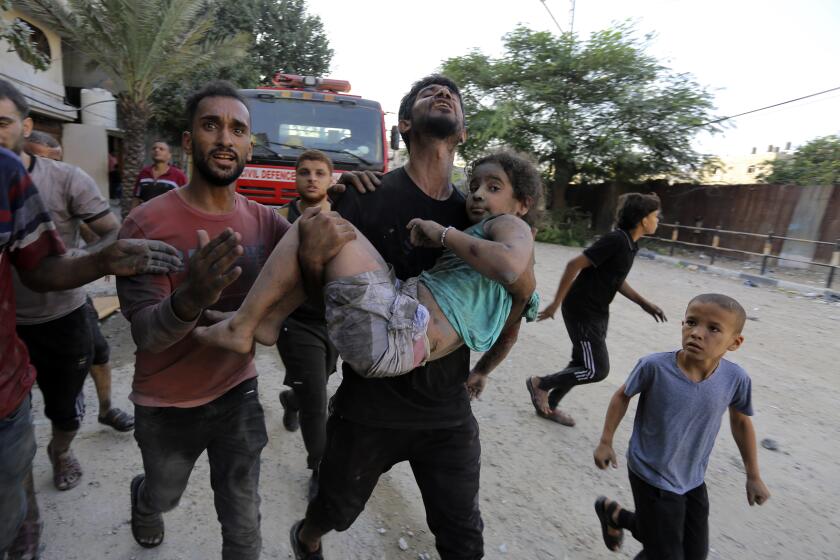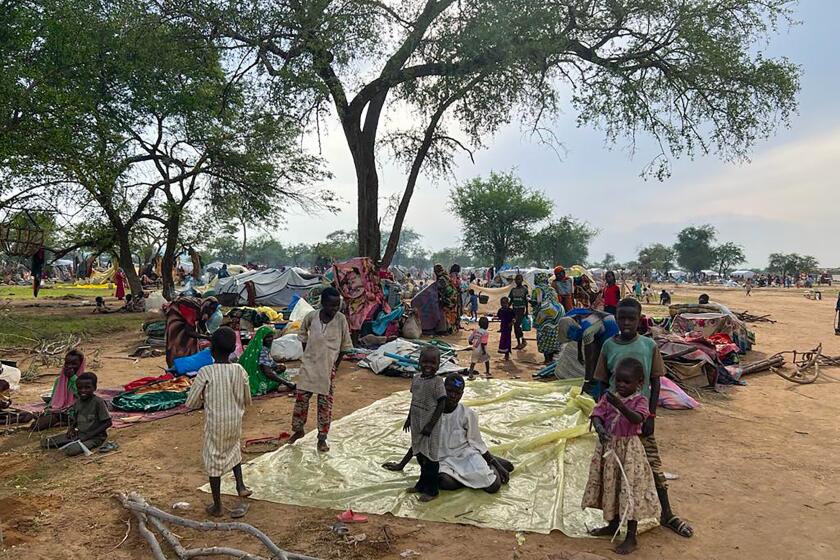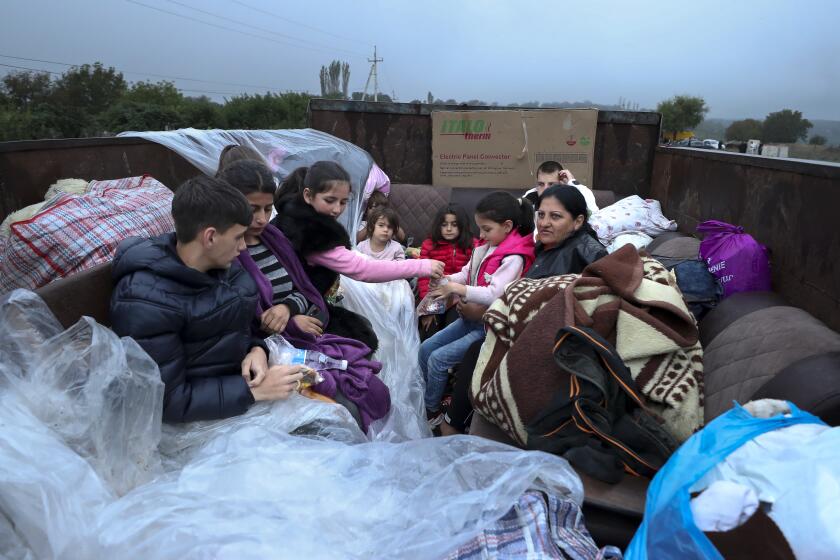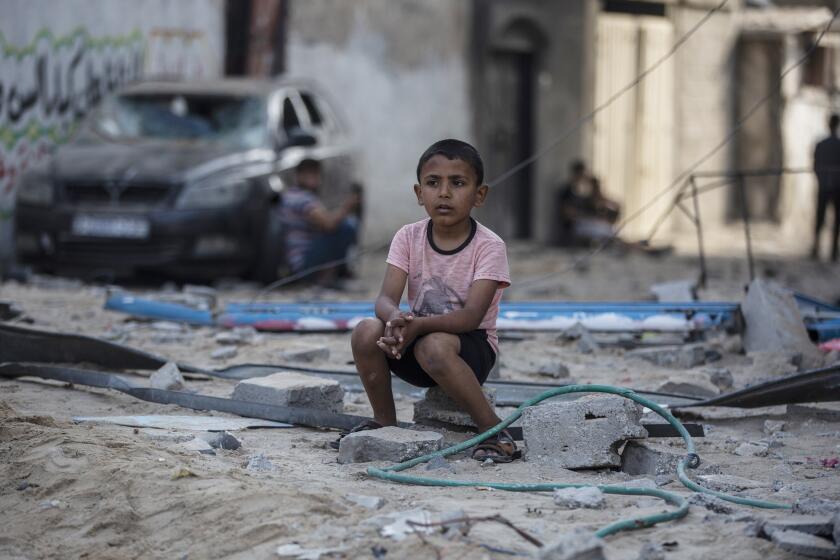The slaughter of civilians in Ukraine, Israel and Gaza shows us a new age of mass violence
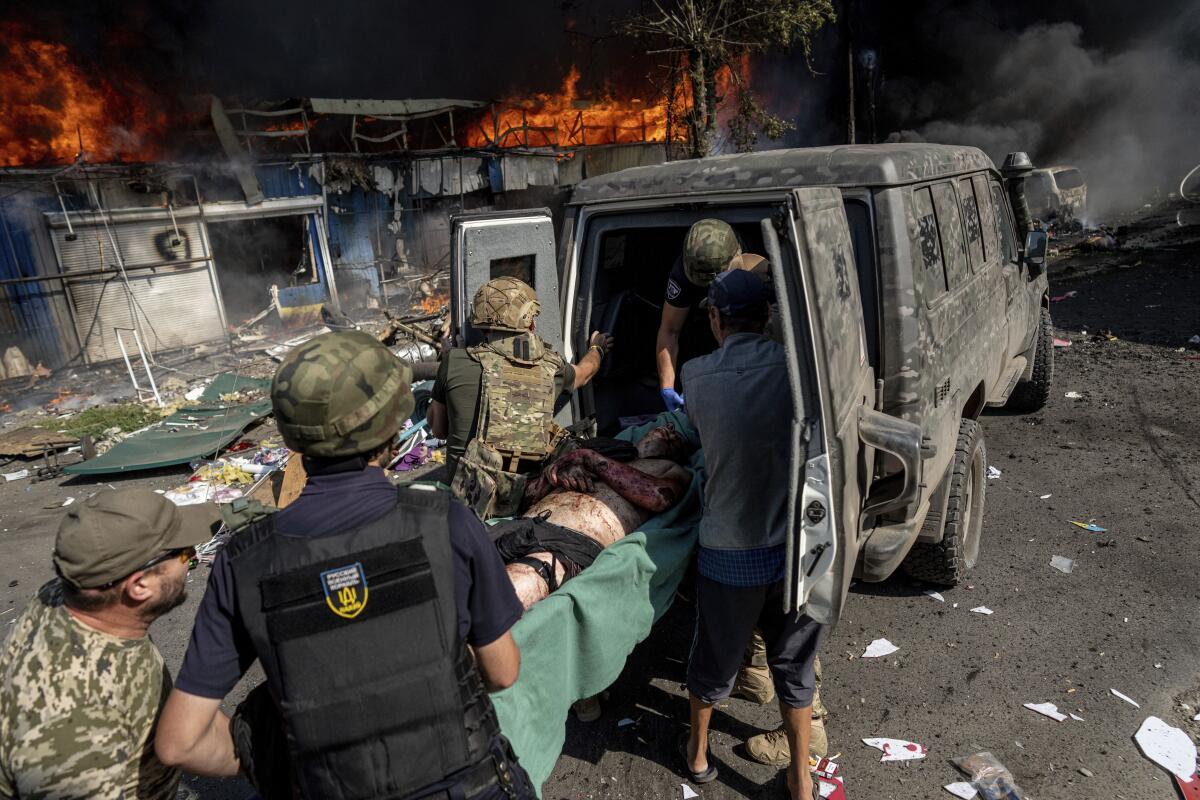
- Share via
Since Hamas’ attack on Israeli civilians on Oct. 7 and Israel’s retaliation, global attention has shifted from Ukraine to the Middle East. But while we are transfixed on Gaza, large-scale violence against civilians is also taking place elsewhere.
In the former Armenian enclave of Nagorno-Karabakh nearly the entire population had to flee, becoming refugees in the wake of Azerbaijan’s decisive victory in a conflict that lasted over two decades. In Ukraine, investigators constantly uncover new and ever more gruesome evidence of war crimes, torture, rape, kidnapping of children and intentional targeting of civilians as part of Russia’s genocidal campaign. In Israel and Gaza, 1,200 Israelis and more than 11,000 Palestinians lost their lives in a bout of violence that includes atrocities, indiscriminate targeting, bombings and hostage taking, leading to claims about a potential genocide or genocidal massacres committed by the warring parties.
Contributor: War crimes or genocide? Either way, we can’t let Russian atrocities go unanswered
Legal action against Russia’s crimes in Ukraine will take time. For now, increased sanctions and other measures could help isolate Russia.
In Sudan, more than 360,000 civilians recently became refugees to escape mass violence and crimes against humanity carried out by the Rapid Support Forces amidst the country’s civil war. In the Balkans, Serbia, Kosovo and Bosnia and Herzegovina are on the brink of violent armed conflict. These and other cases of mass violence are all parts of an emerging global wave. A new age of ethnic cleansing and mass murder is upon us, and more horrors are coming.
All these conflicts have unique local causes and dynamics. Yet, different though they might be, they are also connected. The Russian invasion of Ukraine and Vladimir Putin’s efforts to challenge the U.S.-led global order emboldened and empowered other actors, such as Iran or Serbia. The rupture between Moscow and the West prevents a coordinated international action to restrain and contain emerging conflicts.
The doctors I’ve worked with to build an advanced pediatrics system in Gaza now find that dream shattered. Children can’t get even the most basic care.
All forces that are perceived by the Kremlin as hostile to the West can now count on Moscow’s diplomatic backing in the United Nations and are cheered by Russia’s global propaganda machine. Some might receive financial support and access to Russia’s military technologies. In places such as war-torn Sudan, the Kremlin’s involvement is even more direct, with Russian mercenaries arming and training those engaged in crimes against humanity.
Global attention to Ukraine, and now Israel and Gaza, provides other actors, such as Azerbaijan, an opportunity to accomplish their maximalist goals without the fear of being in the spotlight or provoking international reaction. And when the war in Ukraine ends, the masses of Russian soldiers, accustomed to committing atrocities, will provide ready and cheap muscle for armed groups and conflicts elsewhere.
Militias are burning villages and killing and raping residents in Sudan’s Darfur region, which became synonymous with genocide and war crimes two decades ago.
Genocide and ethnic cleansing offer politicians what might seem like an easy solution to complex problems. There is no need to compromise and negotiate — concepts that radicals and populists abhor — if there is no one left to compromise with. In an era of increasingly polarized and intolerant politics and growing perceptions of existential threats — from opposing military alliances, different ethnic groups, religions, ideologies or identities — the eliminationist message becomes appealing. And most crucially, the international community and the U.S. in particular seem both unable and unwilling to do anything about this trend, even as the perpetrators face only minimal consequences or none at all.
The U.N. Convention on the Prevention and Punishment of the Crime of Genocide and the broader framework of the international humanitarian law, which were designed to prevent mass atrocities, never ensured compliance, but now they seem utterly irrelevant and detached from actual events. Scarred by the wars in Iraq and Afghanistan, the U.S. — the only country with the resources and capacity to stop mass murder anywhere on the globe — has lost the appetite for such actions. But without the U.S., prevention of mass atrocities is doomed. Scholars and experts imploring states and armed groups to stop violating international law and collective statements warning of potential genocide or ethnic cleansing have little effect.
Ethnic Armenians are fleeing Nagorno-Karabakh over the border to Armenia, as Azerbaijan asserts full control over the enclave Armenians call Artsakh.
The record of accountability and punishment for atrocities is no less abysmal. Thus far, Russia’s well-documented crimes against humanity produced only two indictments by the International Criminal Court and zero arrests of key perpetrators. It is unlikely that Putin, one of the two Russian officials indicted by the ICC, will ever face justice. The main impact of the indictment was just to limit Putin’s ability to travel abroad. The likelihood of other leaders, Russians and others, to ever face justice is equally low.
Can this global wave of mass violence be stopped or reversed? Probably not. Neither the U.S. nor NATO is likely to start committing resources to saving lives in faraway places. Actors that ignored international law will not suddenly begin abiding by it, and the conflict between Russia and the West precludes a possibility of a broad-based international action.
Israel struck the Jabaliya refugee camp in the Gaza Strip Tuesday. Palestinians have experienced a long cycle of displacement within and beyond Israel’s borders.
But the West can still reduce the destructiveness of this violence. The first task is to recognize that while each case of mass violence is different, they are also interconnected, and addressing the sources of one will help reduce others. Limiting the ability of Russia or Iran to export violence will have effects beyond Ukraine or the Middle East. Influencing and, if needed, restraining allies is as necessary as taking action against adversaries. Substantial investment in accountability and punishment is cheaper and less controversial than military intervention, but might force perpetrators to rethink their policies.
At some point, the combined impact of images, testimonies and evidence of unspeakable suffering might make the public more willing to take prevention and intervention against mass violence seriously. Until that happens, even limited policies can save the lives of thousands. We owe them that.
Eugene Finkel is an associate professor of international affairs at Johns Hopkins University and the author of the forthcoming book “Intent to Destroy: Russia’s Two-Hundred-Year Quest to Dominate Ukraine.”
More to Read
A cure for the common opinion
Get thought-provoking perspectives with our weekly newsletter.
You may occasionally receive promotional content from the Los Angeles Times.
